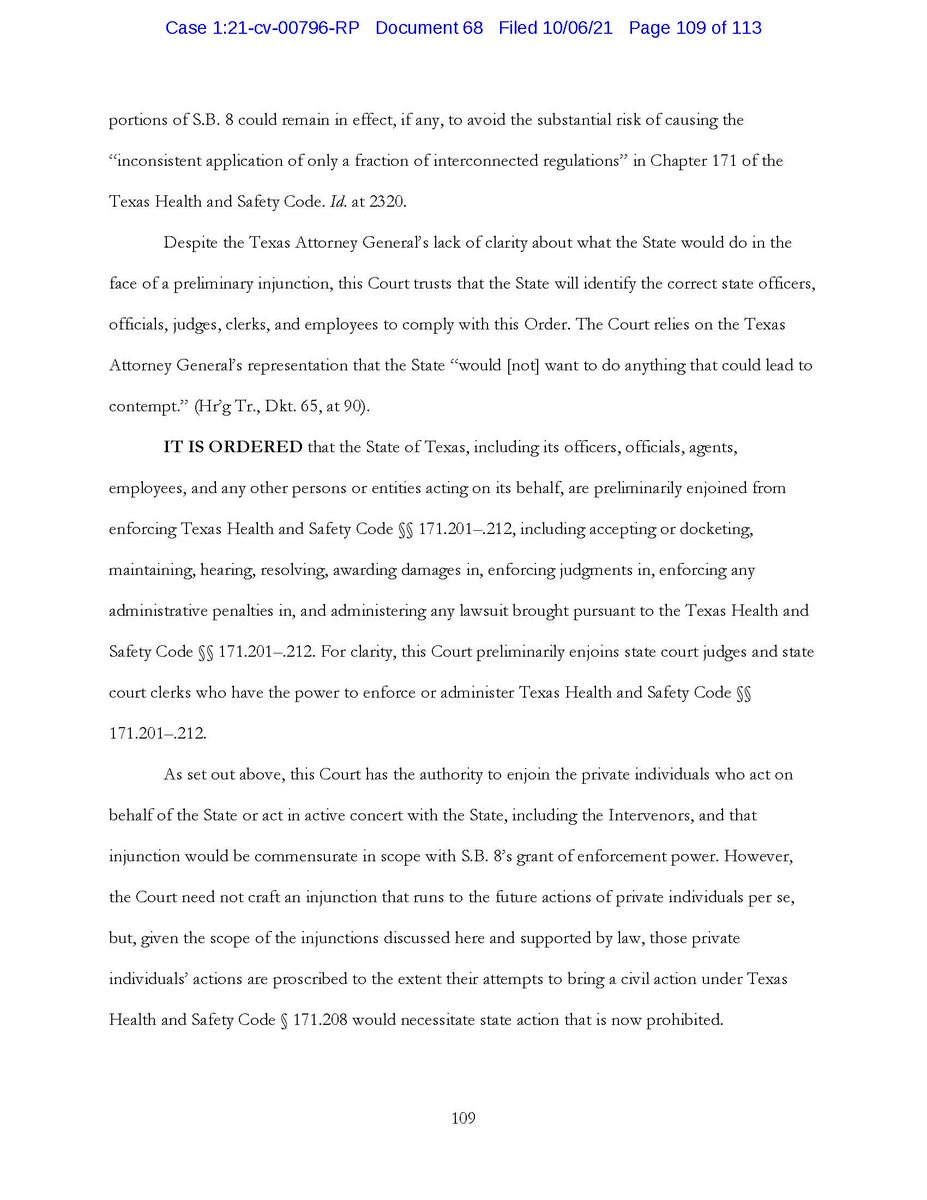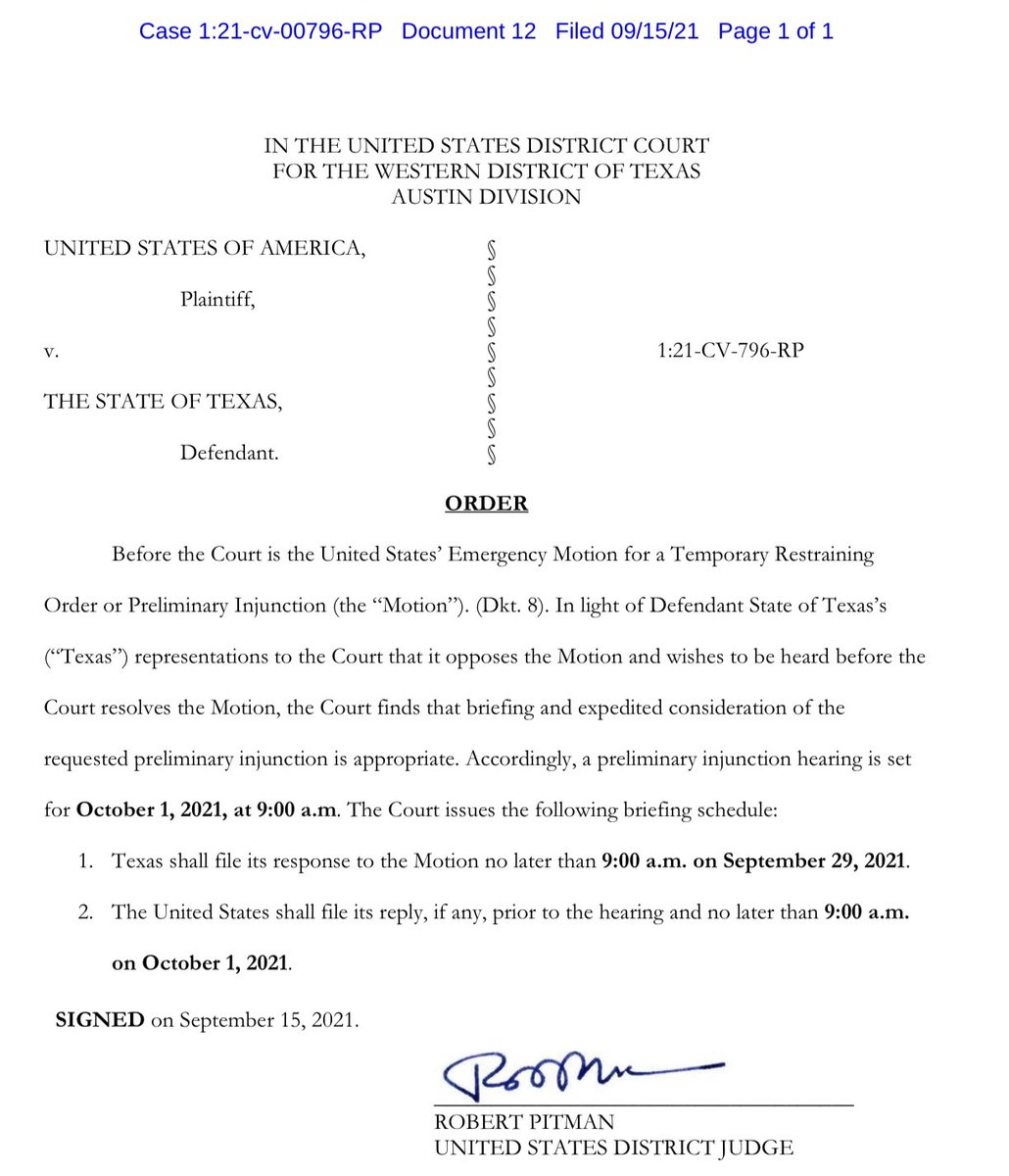
This prediction is worth what you paid for it, but it sure *feels* like this is heading toward a very narrow, 6-3 ruling holding that Ex parte Young *doesn't* preclude injunctive relief against court clerks in these specific circumstances — and remanding for further proceedings.
And that holding might be enough to convince a broader majority to punt the federal government's case (and deny DOJ's application to vacate the Fifth Circuit's stay on mootness grounds).
One big clue will be how many Justices during the U.S. v. Texas argument ask about what happens to the DOJ suit if they rule for the providers in the first case...
(In English: The Court might hold that (1) the providers should be allowed to challenge #SB8 by suing all of the court clerks in Texas; and (2) that holding obviates the need to decide whether the providers can sue anyone else, or whether the federal government can sue "Texas.")
• • •
Missing some Tweet in this thread? You can try to
force a refresh











